
Public opinion poll about diplomacy in 2014 (Japanese Cabinet Office) 
|
My Opinion
|
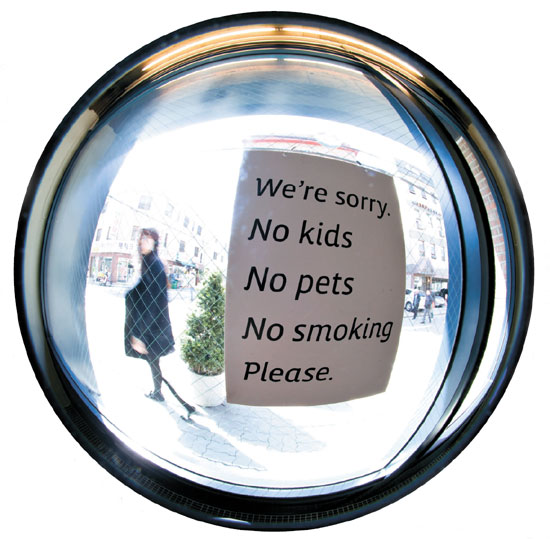
"We set a limit to entrance of the person accompanying a child." Restaurants and coffee shops which post such a guidance sentence on the store are increasing recently in Korea. They are so-called "no kids zone". Why do they refuse the entering? The reason is because other customers and storekeepers receive the serious nuisances because of some ill-mannered mothers. It may be hard to believe the annoying acts, but they are the following things.
These are just a part, but are acts the commoners can't imagine. Such thoughtless mothers is the social problem in Korea. They are called "Mom Choong". This is the word that tied "Choong"(bug in English) to "Mom". It is a word disparaging thoughtless mothers. Because the shops are at risk of taking responsibility, storekeepers set "no kids zone" unwillingly. Because Korea is the infinite competitive society, they are apt to think to stand above other persons rather than to cooperate with others. The consideration for other persons is not taught very much, most of Korean are brought up in the environment where they strongly insist on themselves. Meanwhile, they become adults without knowing the concept "consideration to others" and become mothers. |
My Opinion
|
|
KITA already concluded duties agreement with Korean job information site "Job Korea" and Japanese employment information company "My Navi" on February 26. And it will have "Japan operation success strategy briefing session" in Seoul. KITA will perform education to help the jobseekers in hope of finding employment in Japan, and it invites Japanese companies in July and holds the appointment exhibition. KITA is going to do the overseas marketing education and trade business education to young men who want to work in Japan, in consideration that Japanese companies are very conservative and severe when they employ a person. |
My Opinion
|
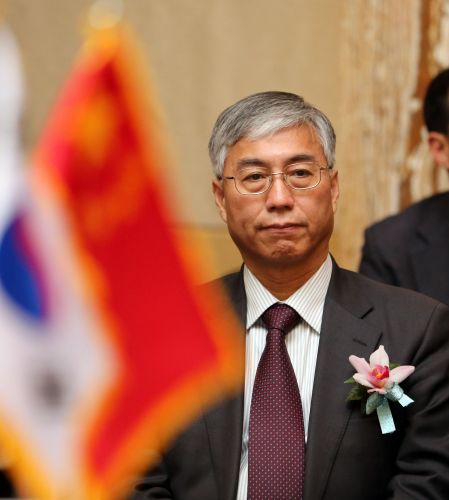
On Feb. 24, South Korea’s Blue House and Foreign Ministry both objected to remarks made the previous day by Chinese Ambassador to South Korea Qiu Guohong made to Kim Jong-in, interim leader of the Minjoo Party of Korea. During their meeting, Qiu was quoted as saying that China-South Korea relations could be destroyed because of the single issue of the THAAD missile defense system. The South Korean government summoned Qiu to the Foreign Ministry to issue a complaint. The move is expected to make an impression, since it is rare for Seoul to summon the Chinese ambassador, though it sometimes summons officials from the Japanese Embassy. On Wednesday afternoon, South Korea’s Deputy Foreign Minister Kim Hong-gyun summoned Qiu to the Foreign Ministry office at the Central Government Complex in Seoul to discuss what Qiu had said about THAAD on the previous day and to ask why he had made those remarks, a Ministry official said. “Qiu expressed his understanding of the sensitive nature of this issue, and he communicated his intention to work even harder as the Chinese Ambassador to South Korea for the continuing development of relations between South Korea and China,” the official said. “The deployment of THAAD with US forces in Korea would be a measure taken in self-defense in response to the increasing threat posed by North Korea’s nuclear weapons and missiles. As such, this is an issue that will be decided according to the national security and the national interest, and China needs to be aware of this,” Blue House spokesperson Jeong Yeon-guk said in a conference with reporters on Wednesday morning. |
My Opinion
|
|
A Korean man in his 50s was arrested by a police officer in Korea, Pusan on February 23. He threw two plastic bottles with raw eggs and handbills to the Japanese consulate general in Pusan. Korean citizen groups protested, "Japan should abolish 'Day of Takeshima'. Kneel and apologize about aggression! Apologize! Apologize! Apologize!" Plural citizen groups protested the ceremony of "Day of Takeshima" in front of the Japanese Embassy in Seoul and demanded the abolition of the day. In addition, the performances to tear and trample the Japanese textbook of the social studies with the description about Takeshima were carried out.   
|
My Opinion
|
|
The PR event that Japanese Ministry of Foreign Affairs was going to hold in commercial facilities in Wangsimni Station in Seoul in Korea on February 20th and 21st to wipe out the damage by rumors by the East Japan great earthquake disaster was called off. Japanese Ministry of Foreign Affairs to sponsor announced it on February 20th. Seoul City Song-dong-gu did not permit the event. A citizen group in Korea had claimed, "Cancel the event of the radioactive contamination foods in Fukushima promptly!". Seoul City Song-dong-gu might have considered such a repulsion. |
My Opinion
|

After the fourth nuclear test in North Korea, the reckless nuclear armament idea is a subject of a heated debate in the conservative in South Korea. But Japan is quiet unlike Korea. Japan does not give a special reaction to the nuclear armament in Korea either. Why? In 2006 and 2009 when North Korea had the nuclear tests, Shoichi Nakagawa (died in 2009) who was a former Japanese Diet member and a member of Liberal Democratic Party woke an argument. He said, "Only nuclear weapon stands up to nuclear weapon." However, the current Abe Administration keeps silent. Japan is considered to have ability that can make a nuclear weapon within from six months to one year if determined. Some Korean say, because Japanese ability is enough, Japan has not to wake up an uproar by useless words, and this is the highly well-thought reaction. |
My Opinion
|
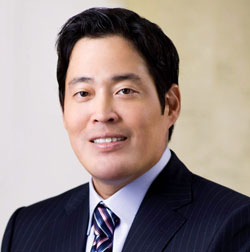
Korean Shinsegae Group opens the independent shop, "No brand shop" that sells the "No brand" products of the E-Mart brand (PB). It sells food and daily necessities and expands the range to goods of kitchen and the interior and the articles for daily life apart from E-Mart. On February 18, according to the financial circles and Shinsegae Group, the vice-chairperson Chung Yong-jin (鄭溶鎭, 48) did such a decision. In this September, the first shop will be open in Henam Union Square that is the supersized compound shopping mall in Henam City in Gyeonggi Province. The vice-chairperson Chung said, "We have to strengthen the lifestyle goods more than the perishables which are advantageous to the local companies to succeed abroad. 'No brand' will catch up with 'Mujirushi Ryōhin' (MUJI, Japanese brand of wide variety of household and consumer goods)."
|
My Opinion
|
|
Korea Foundation for International Culture Exchange (KOFICE) investigated the difference of the Korean images according to the consumption of Korean contents for 169 foreigners in overseas 12 countries by depth interview method in October to December in 2015. As a result of the investigation, the images of Korea were totally different depending on degree of "Korean Wave".
Dok-jung Kim, the Secretary General of KOFICE said, "Most of the negative images for the Korean are from the their contacts with the local Koreans. We have to enhance the aggressive personnel exchange along with 'Korean Wave'." |
My Opinion
|



|
My Opinion
|

The holding of the test games on February 6 and 7 hosted by Fédération Internationale de Ski(FIS) was worried about. But as FIS gave official approval by place inspection on January 20, the test games will be able to be held somehow. However, a contractor stormed into the press conference to demand the unpaid construction cost and the conference was confused. The persons concerned with FIS attended there. The plural Korean media reported it with "an international disgrace". |
My Opinion
|
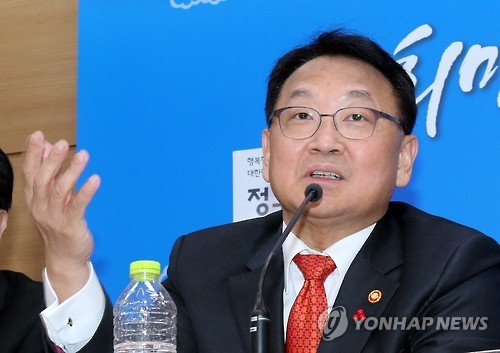
On January 14, Yu Ilho Korean deputy prime minister said, "We are not in the situation that must propel a Japan-Korea currency swap agreement right now." And he also said, "We do not oppose the swap agreement if Japan offers that to us." This is the reaction to Japanese report that Japanese Sankei Shimbun said "If the Korean government offers the currency swap agreement formally, Japanese Government is going to agree to it again". The agreement means that a country with the economic power supports neighbor countries. Hirokazu Hiratsuka, director of Asia Research Department of the Mizuho Research Institute says, "From a viewpoint of the confidence of currency and foreign exchange reserves, Japanese yen has the high convertibility than Korean won, and the situation is that Japan supports Korea and Korea is supported." |
My Opinion
|

More than 40% of South Korean university students have plagiarised, a survey has found. Four out of ten students admitted copying and pasting material from the internet and submitting it as their own work. The surveys were sent to over 370 South Korean undergraduates studying a range of subjects by UK-based website Plagiarism Advice.org, which provides expert advice and training to the education sector. The site is sponsored by Turnitin, the world-leading plagiarism prevention tool which is already used by Korean higher education institutions including POSTECH, KAIST, Hanyang University, Yonsei University and others. Students were asked a range of questions around their perceptions of plagiarism and how their university tackles the problem. Over 70% of students who responded said they were in favour of teachers and tutors using plagiarism detection software such as Turnitin to check their work. But just one in five thought that their university or college was taking the problem of plagiarism seriously enough. Turnitin’s Academic Advisor, Gill Rowell, said: "Students seem to have a reasonable level of awareness about plagiarism and the various activities which constitute academic misconduct, however the guidance from their institution seems to be lacking. "Almost 70% of students feel that their university or college guidelines don’t make it clear how to correctly reference other people’s work. Students were generally in favour of using detection software such as Turnitin and were keen to uphold the reputation of their institution." But worryingly around 40% of students admitted to small scale plagiarism. Around 300 undergraduates, at different stages of their courses, responded to the anonymous surveys. Professor Woojin Paik, former director of the Center for Teaching and Learning and currently Professor of Computer Science at Konkuk University Glocal Campus, said: "The survey results confirm what I learned while I was teaching. Most of the students knew that they were copying others' work but did not know exactly what to do. "However, once they reviewed their work after it had been screened by detection software they understood their mistakes and didn’t repeat them. I believe that plagiarism detection software can play a major role in maintaining academic integrity in Korea.""" The majority of students who responded to the survey had a good understanding of plagiarism and knew that purchasing work from essay banks and copying text from the internet without referencing the original source were against the regulations of their university or college. However they were less clear about group work and working with other students on assignments when they were supposed to be working alone, known as ‘collusion’. Just 55% understood that this was against the rules. Ms Rowell added: "South Korean students are not unique in this respect, many students find this area confusing." |
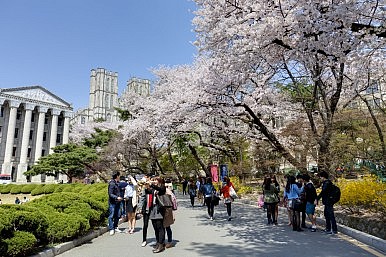
Plagiarism, fake credentials, and dry labbing occur everywhere, but seem to be particularly prevalent in South Korea. The 2012 OECD Programme for International Student Assessment ranked South Korea fifth in reading and math. An unsurprising outcome given the country’s grueling education system and traditional veneration of scholars. Yet not all is well in South Korean academia: Recent years have seen a spate of scandals involving scientific misconduct, job fraud, and academic dishonesty. Take for example Seoul National University’s former professor of biotechnology Hwang U-seok, whom Time listed among its 100 most influential people of 2004 after he published his success with human embryo cloning in the illustrious journal Science. A 2005 investigation determined Hwang’s research had been faked. Or Sin Jeong-ah, former professor of art at Dongguk University appointed in 2007 to co-direct the prestigious Gwangju Biennale. The Korea Times reports she claimed to have a PhD from Yale. She lost her job and the appointment when officials learned her academic background was a fabrication. The New York Times offers similar cases such as architect Lee Chang-ha’s dismissal by Kimcheon Science College for holding a degree from a fictitious New Bridge University department, Kim Ok-rang’s resignation from Dankook University after admitting a diploma mill had “graduated” her, renowned Buddhist monk Jigwang’s claim he attended Seoul National University, and actress Yun Seok-hwa’s lie that she was an NYU alumna. And then there is plagiarism. Recent cases include lawmaker-elect Yeom Dong-yeol and 2004 taekwondo gold medalist Moon Dae-sung, whose doctoral dissertations were works of plagiary. Dry labbing, using fake diplomas, and plagiarism are discrete offenses, but they may all be taken as types of intellectual fraud. They occur everywhere, of course, but is there a particular susceptibility in Korea? The Korea Times records Ethics Professor Heo Nam-kyol’s view that “under the Confucian tradition, pupils were taught to copy the words of their teachers [...] instead of writing their own opinions.” He contrasts this with the Western tradition of challenging authority, citing Aristotle as the progenitorial example. However, until the 18th century, imitation was encouraged in the West too. The Romantic era’s emphasis on artist as individual changed this. In Readings in Medieval Poetry, University of Virginia English Professor AC Spearing describes the post-Romantic poet as “burdened with the obligation of an impossible originality.” Korea never had a Romantic movement or anything like it, nevertheless the practice of copying teachers’ work is only partly to blame. Confucianism also places a premium on social status, measured in Korean society by one’s age, profession, educational background, even clothing. This is not to say Harvard degrees or Prada suits have no effect outside Korea, but we must remember the Korean caste system lasted until the mid-1900s; faking accomplishments has been one way Koreans have enjoyed some modicum of social mobility. Part of the problem too is the excruciatingly competitive education system, whereby students suffer to make academic ends meet and unless they are gifted or can afford private tutors, there is little recourse. Consider the number of South Korean teens who would also rather die than fail. Indeed, suicide remains the leading cause of death among Koreans aged 15 to 24. What is uniquely Korean then, is its culture of education. Shaming public figures if and when they happen to get caught is no solution and if Korean schools condone plagiarism by failing to adequately punish plagiarists, the risks will remain acceptable. Yet the remedy is in the root, the best defense being an educated youth and an edifying history from which to draw. Chronicling Spartan history, Plutarch writes when asked why Sparta was without walls, King Agesilaos II pointed to his men and answered, “these are Sparta’s walls.” |
My Opinion
|
 "Pure Korea will eventually become a thing of the past"
(Korea・KUKMINILBO)
(January 15, 2016)
"Pure Korea will eventually become a thing of the past"
(Korea・KUKMINILBO)
(January 15, 2016)
The contents that the Australian ABC interviewed Jasmine Lee member of the Diet of the Saenuri Party in November, 2012 cause moral indignation of netizens. The interview contents becoming the problem are like this. She said, "The government is actually very unprepared for the fast rise of the immigrants in the country." And she added, "We cannot force them to be Koreans, we have to understand where they're coming from, and what they're thinking." And her next words "A culturally-pure Korea will eventually become a thing of the past. (It will become the stuffed specimens in the museum.) " cause moral indignation of netizens. Jasmine Lee's wild remark (Korea・sookut.com) (January 15, 2016)
Jasmine Lee's original words (Australia・ABC) (November 23, 2012) "Pure Korean, Impure criticism" (Korea・HuffingtonPostKorea) (January 20, 2016) For example, when you emigrate to the U. K. and you receive discrimination for the reason of being different from a British, how do you feel about that? We are the nation who want to protect the identity as the Korean, and if you are forced British style, how do you feel about that? We will say to British people to respect the cultural characteristic of Koreans. "The Korean discriminates according to racial difference" (Korea・The Hankyoreh) (December 2, 2015) There are always many slanders to the interviews to Jasmine Lee of the Saenuri Party. There are always vicious notes to the articles of the politicians, but the vicious notes to her articles always have much "like". Though the contents of the interview are common-sense levels and almost the story of her life, people write the vicious notes just as if they compete. The vicious notes come from the nationalism based on the single race myth that is the hugest religion in Korea. The people who cannot become the believers of the religion do not seem to be Koreans in spite of being a Korean at the same time. Some people say "Return to your country" to the Korean who lives more than 20 years after her naturalization, and some agree with their words aggressively. Do they understand the meaning of their acts? According to the article that analyzed the the multicultural family, 28.9% of emigrant people by marriage have experienced the discrimination in the workplaces, and 26% have experienced the discrimination in the shops and the restaurants. Only 27.8% of men from Europe have experienced the discrimination in the workplaces, but 41.6% of men from non-Europe such as Vietnam, China, the Philippines and emigrant people by marriage have experienced discrimination. |
My Opinion
|
 15 executives such as the Prosecutor-General of the Philippines --- receive 2-week investigation education in Korea
(Korea・Joongang Daily)
(January 7, 2016)
15 executives such as the Prosecutor-General of the Philippines --- receive 2-week investigation education in Korea
(Korea・Joongang Daily)
(January 7, 2016)
The 15 prosecution executives of the Philippine where murder cases of Koreans have occurred in succession will receive investigation technique education in Korea.
|
My Opinion
|

SEOUL, South Korea - A South Korean court ordered a university professor on Wednesday to pay 10 million won, or $8,262, to each of nine women who had filed suit claiming that the scholar had defamed them in her book about Japan’s World War II-era military brothels. Since Park Yu-ha, a professor of Japanese literature at Sejong University in Seoul, published “Comfort Women of the Empire” in 2013, she has faced a series of civil and criminal complaints from the nine South Korean women, who say they were forced to serve at the brothels during the war. In ruling on a civil lawsuit on Wednesday, the Eastern District Court in Seoul said that Ms. Park must pay reparations because she had defamed the women with “false,” “exaggerated” or “distorted” content in her book. Ms. Park said she would appeal. Many intellectuals in South Korea and Japan have condemned the legal maneuvers against Ms. Park as violations of freedom of scholarship. They have also warned that her troubles illustrate how dangerous it could be to challenge conventional wisdom in South Korea about historically delicate issues. In her book, Ms. Park called for a more comprehensive view of the women in the brothels, euphemistically referred to by the Japanese as “comfort women.” They have been widely described in official South Korean history as young women forced or lured into sexual slavery. Ms. Park argues that such a picture was only partly true. Ms. Park also wrote that there was no evidence that the Japanese government was officially involved in, and therefore legally responsible for, forcibly recruiting the women from Korea, then a colony of Japan. She said that Korean collaborators, as well as private Japanese recruiters, were mainly responsible for taking Korean women, sometimes using coercion, into the “comfort stations,” where she said life included both rape and prostitution, and the women developed a “comradelike relationship” with Japanese soldiers. Ms. Park’s critics in South Korea, including historians and former sex slaves, accuse her of selectively choosing historical data to parrot a view that many Japanese take on the issue. They call her a “pro-Japanese apologist.” In February, another court ruling ordered that her book be redacted in 34 sections for what it called defamatory content. Aside from the civil lawsuit decided on Wednesday, Ms. Park also faces a separate criminal trial, after prosecutors indicted her last November on a charge of defaming the women. The comfort women issue has been one of the most emotional disputes between South Korea and Japan, both important allies of the United States. Historians say that at least tens of thousands of women, many of them Korean, were in the brothels from the early 1930s until 1945. A total of 238 women have come forward in South Korea, but only 46 are still living, most of them in their 80s and 90s. Of those 46, Lee Ok-seon, who is 88, and eight others sued Ms. Park. They were closely tied to an advocacy group and have often joined weekly protests in front of the Japanese Embassy in Seoul. South Korea says that Japan bears legal responsibility for using coercion in recruiting the women and in running the brothels - a view shared by the Seoul court in its ruling on Wednesday. Tokyo says that the issue was settled once and for all in a 1965 treaty restoring diplomatic ties. Some right-wing politicians in Japan have also angered Koreans by calling the women nothing but prostitutes. Last month, the South Korean and Japanese governments announced what they called a “final and irreversible” settlement. In the deal, Japan expressed responsibility and made a new apology to the women, promising an $8.3 million fund to help provide old-age care. But some of the women have since rejected the deal because they said it failed to specify Japan’s “legal” responsibility or provide official reparations. "Comfort Women of the Empire"
|
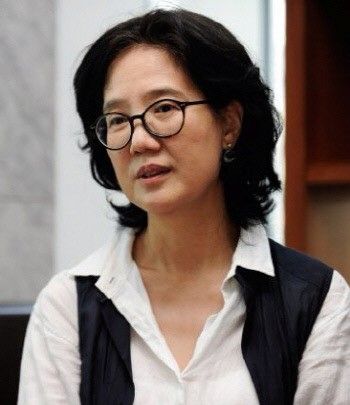
Park Yu-ha who is a professor at the College of Liberal Arts, Sejong University continues fighting alone. "Comfort women of the empire: the battle over colonial rule and memory" cost the author many years' labor. The book denied the "Comfort women were done by the Japanese military and they were sex slaves". But the Korean court prohibited the publication of the book. The author read the collection of the comfort women's testimony and Japanese war literature carefully and wrote that there had been the love and the friendship among the Japanese soldiers with comfort women. Of course she did not conclude it had been essence of the comfort women, but she commented that slave-like rule and obedience were not all. 4,000 copies of Korean edition and 15,000 copies of Japanese edition of the book were sold. In last June, nine former comfort women demanded compensation of approximately 3 million yen per person for their damages and they demanded provisional disposition to prohibit publication and an advertisement too. In this February, the provisional disposition was issued in a district court in eastern Seoul. It said that neither the publication nor the advertisement were accepted if the author did not delete 34 parts of the book. She was investigated by the prosecutors for five times, and it is said that the prosecution by the libel is unavoidable. Park Yu-ha is not going to prove good will of Japan, but she is only going to solve the past of Japan from world history of the imperialism. The transfers of capital and the military necessarily bring "the commodification of the women". "Comfort women" still appear and disappear around the world military bases. That is the critical mind of the professor. |
My Opinion
|



WASHINGTON - A South Korean university professor, appearing at a symposium in the U.S. capital, criticized the recent Japan-South Korea agreement to resolve the “comfort women” issue for being negotiated in secret. The process leading up to the accord about women forced into wartime brothels for Japanese soldiers was “not transparent,” Park Yu-ha, a professor at Sejong University in South Korea, told the symposium Monday. “People are not convinced that this was the resolution that is to close off all discussions on the matter,” Park said, adding that the bilateral deal was reached “behind closed doors.” She is the author of a book whose title can be translated as “Comfort Women of the Empire.” Park said, "60 former comfort women had received 'atonement money' from Asian Women's Fund that Japan established, but most of Koreans did not know such a fact". In addition, she raised the existence of former comfort woman who testified, "I was not taken to the comfort station forcibly and I supported a soldier" and she grieved and said, "In Korea as the media tend to follow a unidirectional and specific viewpoint, Korean can not take such a voice of the woman and my viewpoint". Park highlighted the need to create “a consultative body where people can discuss” the matter with the Japanese and South Korean governments. After the symposium, Park said it is natural that objections have been raised because the necessary process of holding discussions with South Koreans was omitted. The process should be carried out over the next six to 12 months, she said. Another participant to the symposium, Alexis Dudden, a professor at the University of Connecticut, criticized the accord as it calls for the removal of a statue of a girl symbolizing the comfort women issue in front of the Japanese Embassy in Seoul. “Neither the Japanese nor the South Korean government has the right to mess with this statue,” Dudden said. “The survivors (among former comfort women) and their supporters alone decide where it belongs.” She also said groups around the world are demanding the removal of statues representing perpetrators of what are now regarded as criminal acts. Park pointed out, "Maybe the persons interested in this problem in the United States have been critical of me, because they are in the supporters' side". She emphasized that the argument between scholars became more important. |
My Opinion
|
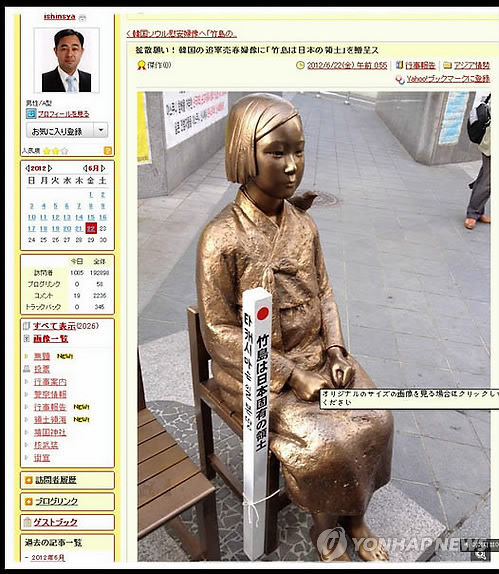
The trial of Japanese extreme right Nobuyuki Suzuki indicted without arrest in February, 2013 has been performed for three years. This is because Suzuki does not accept a judicial summons in Korea. He nailed the stake that wrote "Takeshima (Tok-do) is a territory of Japan" beside the statue of comfort woman in front of the Japanese Embassy in Korea. The Seoul central district court holds the seventh trial of Suzuki on January 15. This trial is held for the first time in 1 and half year after the sixth trial of June 30, 2014. However, Korea cannot punish him through a trial even if Korea repeats to say many times that he does wild remarks and barbaric acts unless he sets foot on the Korean ground because Japanese Government is uncooperative. He sent a statue of girl to insult a comfort women victims and a stake that wrote "Takeshima is Japanese territory" written in Japanese to "House of Sharing" and "Korean Council for comfort women" on May 19, last year. He is also suspected of setting the stake that wrote "Takeshima is a territory of Japan" beside "Ardent patriotism monument of Loyal retainer Yun Bong-gil" in Japan, and having insulted Yoon righteous person with "terrorist" in September, 2012. He ran for the Upper House election of Japan in 2013, but lost. ※Yun Bong-gil … He set off a bomb that killed several Japanese dignitaries and injured many people in Shanghai in 1932. |
My Opinion
|
| Korean | Japanese |
|
The Korean government accepts the setting of the statue of comfort woman in front of Japanese Embassy in Korea even if it violates Vienna Convention on Diplomatic Relations Article 22-2.
(The article says "The receiving State is under a special duty to take all appropriate steps to protect the premises of the mission against any intrusion or damage and to prevent any disturbance of the peace of the mission or impairment of its dignity.") | The Japanese does nothing in front of the Korean embassy in Japan. |
| Korean who picked a bomb with a shrine in Japan is a hero and is respected in Korea. | The Japanese who nailed a stake beside statue of comfort women is looked down on. |
| Korean emotionally labels all the thing against their opinion as "irresponsible remark". | Japanese tries to argue the thing unlike their opinion logically. |
| Korean sues anything against their opinion for libel and an insult. | Japanese respects freedom of expression, and treats the libel carefully. |
| Korean who did terrorism for the Japanese is a hero and is respected. | The terrorist is looked down on. |
| There cannot be the Japanese monument in Korea. | Japanese permits the Korean monument of the Korean terrorist in Japan. |
| On July 9, 2012, the light truck which a Korean man drove broke into the Japanese Embassy in Korea. | The Japanese truck does not break into the Korean embassy in Japan. |

In Taiwan where an epidemic was ungoverned in those days, the rule by Japan restrained epidemics such as malaria or cholera and improved the public hygiene. Japan solved the problems in only approximately ten years. It was impossible for the Qing dynasty to solve them. In addition, the Japanese police protected law strictly and did administration without the corruption to maintain the peace and order. It was also impossible for the Qing dynasty to do so. Furthermore, Japan performed "agriculture reform" in Taiwan. Specifically, they are selective breeding, fertilization, mothproofing, the setting of irrigation facilities and the work system which were consistent from production to processing. As a result of this full-scale agriculture reform, the Taiwanese people obtained a big profit. Taito in the Japanese colonial days |
My Opinion
|

At 8 in the afternoon of November 16, a restaurant near a beach in Patong (Phuket, Thailand) was full of visitors. 39 in 40 tables were used. Outside this restaurant that is famous for Thai dish "tom yam kung", more than ten tourists were waiting and lining up. An Australian saw one table was vacant and shouted to an employee, "Why do you let a seat vacant?" The employee looked embarrassing and said, "the visitors who made a reservation have not come yet". This table was the seat which two Koreans reserved one day before. The Australian who knew this fact was angry and said, "Why did the Korean make a reservation although they do not come at time?" After all, the master who lost in the anger of the Australian visitor showed him into the seat. We met 27 entrepreneurs of hotels, restaurants and the spa shops in Phuket, Thai which 260,000 Korean tourists visited and we heard the actual situation of Koreans' "No show" (reservation cancellation without permission). As a result, 17 answered, "I was damaged for the Koreans' no show". That amounted to 63%. An owner of the restaurant in Phuket said, "the Korean often made reservation cancellations without permission unlike the tourists of other countries". The Thai local employers said, "1-2 sets of Koreans make a reservation cancellations without permission a day on average. Even if they were late for the appointed time, they protest and say 'Why do you not show to a seat'." |
My Opinion
|
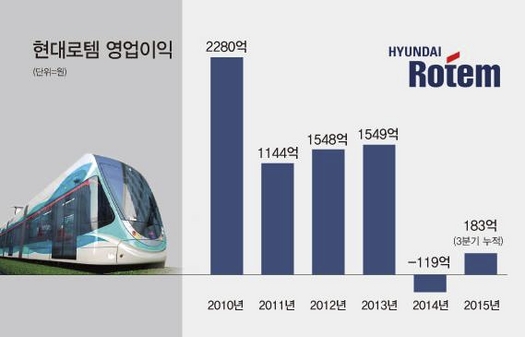
Korean greatest railroad carriage maker "Hyundai Rotem" came to the pinch. Operating profit and loss from January to June in 2015 fell to a deficit of 13 billion won (approximately 1,300 million yen).
|
My Opinion

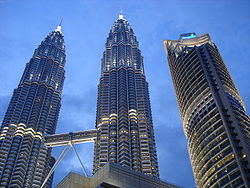
|
Institute for Economics and Peace(IEP) … Global think tank headquartered in Australia |
My Opinion
|

TOKYO ? Japan and South Korea said Monday they had “finally and irreversibly” resolved a dispute over wartime sex slaves that has bedeviled relations between the two countries for decades. In something of a surprise development, the two countries’ foreign ministers met in Seoul to finalize a deal that will see Japan put $8.3 million into a South Korean fund to support the 46 surviving “comfort women” and to help them recover their “honor and dignity” and heal their “psychological wounds.” The move was welcomed in Washington, which has been both concerned and annoyed by the fighting between its two closest allies in Asia. This year marks seven decades since the end of World War II and the end of the Japanese occupation of the Korean peninsula. Independent historians have concluded that as many as 200,000 women and girls ? from occupied countries including Korea, China, the Philippines and other Southeast Asian nations ? were coerced by the Japanese Imperial Army to work as sex slaves during the war. “We made a final and irreversible solution at this 70th anniversary milestone,” Japanese prime minister Shinzo Abe told reporters in Tokyo after speaking to his South Korean counterpart, President Park Geun-hye, on the phone. Earlier, in Seoul, his foreign minister had said Abe “expresses anew his most sincere apologies and remorse to all the women who underwent immeasurable and painful experiences.” “I feel we’ve fulfilled the responsibility of the generation living now,” Abe said after his call with Park. “I’d like this to be a trigger for Japan and South Korea to cooperate and open a new era.” In Seoul, Park said it was “especially meaningful” to reach the agreement before the end of 2015, the 50th anniversary of normalized relations between Japan and South Korea. “The most important thing is for Japan to diligently and promptly implement what has been agreed to restore comfort women victims’ honor and dignity and heal their wounded hearts,” Park said, according to the Yonhap News Agency, after meeting with Fumio Kishida, Japan’s foreign minister. Seoul nonetheless promised this would be the end of the dispute ? which has been officially “resolved” before ? if Japan fulfills its side of the agreement. It comes less than two months after the two leaders held their first summit , and after the resolution of a high-profile court case, with a Japanese journalist this month acquitted of defaming Park. Tokyo had considered the dispute to have been formally resolved in 1965, when it normalized relations with South Korea and offered $800 million in compensation in 1965 for its colonial-era brutality. |
My Opinion
|
|
A Korea Aerospace Industries/Lockheed Martin T-50 Golden Eagle jet trainer/light combat aircraft belonging to the Indonesian air force crashed on 19 December, during an aerial display at Yogyakarta, Java. The T-50 is believed to have been flying to celebrate the 70th anniversary of the air force’s flight school and local reports claim the supersonic aircraft spiralled to the ground, killing its pilot and co-pilot. Video footage shows the aircraft ascend to carry out manoeuvres, before abruptly descending and exploding on impact with the ground. This is the second known loss of a T-50 since its introduction 10 years ago. The first was in November 2012, when a South Korean air force pilot from the service's Black Eagles aerobatic display team died when a T-50B trainer crashed into a mountainside in Hoengsong, 48nm (90km) east of Seoul. Indonesia was the first export customer for the T-50 and had 16 of the type in service before the crash, Flightglobal’s Fleets Analyzer database shows, with an average fleet age of two years. Other operators include the South Korean air force, which operates 105 of the type, and the Philippine air force, with two in service and 10 more on order. The Royal Thai Air Force ordered four under a deal signed in September, deliveries of which are expected to begin in 2018. Iraq was the second export customer for the type, agreeing to a buy $1.1 billion worth. At the point of the contract signing, it was slated the first aircraft would be delivered in April 2016, with all 24 to be transferred within 12 months. The Iraqi air force, meanwhile, has 24 on order, and media reports claim the first five from the 2013 order have been handed over to the service. The type is also being pitched for the US Air Force’s T-X trainer programme, and earlier this month KAI revealed the T-50-based offering it is proposing with Lockheed. The development will undergo ground tests in 2016 and flight trials in 2017. |
My Opinion
|

A South Korean court cleared a Japanese journalist on Thursday of defaming the South Korean president in a case that raised new questions about media freedom and had threatened to inflame relations between the uneasy neighbors. Tatsuya Kato, former Seoul bureau chief of Japan's Sankei Shimbun newspaper, was indicted in October last year when prosecutors said a report he wrote in August over President Park Geun-hye's whereabouts during a ferry disaster was based on false information, had no foundation and damaged her honor. "The court views the conduct of the defendant was in the realm of freedom of the press," Judge Lee Dong-geun said at the conclusion of a three-hour hearing, speaking for a three-judge panel. "It is difficult to conclude that the defendant intended to defame the president or libel her as a public figure." Prosecutors had sought an 18-month prison term. The case drew criticism from media and human rights watchdogs over Park's stance on freedom of the press and fueled worry that the legal system could be used to stifle political opposition. Kato had remained free during the months-long proceedings. A ban on him traveling overseas was lifted in April. South Korea's foreign ministry had asked the court to consider Japan's request for leniency given the two countries' recent efforts to improve ties. Relations between the neighbors are strained over what South Korea sees as Japanese leaders' reluctance to properly atone for the country's colonial wartime past, especially over the issue of Korean "comfort women", as those forced to work in Japanese military brothels during World War Two are known. The verdict came amid a politically charged debate over a decision by Park's government to remove privately published textbooks from schools and replace them with a government-issued version. |
My Opinion
|
|
PD Im Hyung Taek of the SBS show "Running Man" has apologized in light of accusations that the show plagiarized a game from a popular Japanese variety show. The plagiarism allegations came about after one of the missions on December 6′s episode of "Running Man" was a huge pinball game that required several people to maneuver paddles attached to the side. Some viewers noticed a similarity between the game played on "Running Man" and a game called "Korokoro Viking" that was featured on the Fuji TV variety show "VS Arashi," which stars the popular J-Pop group Arashi. On December 14, Im Hyung Taek talked to the news outlet Sports Chosun over the phone about the accusations. "There are times when we use images when we’re in planning meetings, and sometimes we are unable to check where those resources came from. This is likely what happened in this case," he says. "I can’t say anything specific in terms of plagiarism because I have not seen that Japanese show," he continues. "But it seems that as the person in charge, I was not able to check things in detail. I sincerely apologize to our viewers for this. We will be more careful in the future." "Running Man" airs every Sunday on SBS.
|
My Opinion
|

Japanese police have arrested a South Korean man suspected of bombing Tokyo's controversial Yasukuni shrine. A small blast hit a public toilet on 23 November as the shrine opened for a festival. There were no injuries. The blast reportedly opened a hole in the ceiling and left behind the remains of batteries, wires and metal pipes that police believe contained explosives. The suspect, 27, is alleged to have gone to Korea after the incident, but was arrested on his return to Japan. Japanese media had previously identified the suspect from CCTV footage from the shrine and the nearby area, where he is reported to have stayed. Police approached the man at Tokyo's Haneda airport and arrested him on a charge of illegal entry into the shrine. When the suspect Chon was arrested, he had something like gunpowder and something like timer. At first on 9th, he denied the allegation. But he changed his testimony and said, "I entered Yasukuni shrine on 23rd, and set explosive substance. But I failed the explosion. I intended to do it again." On 10th he denied it again. He said that gunpowder and the timer were not his. The suspect seemed to be going to do a one day trip, because he had the ticket for returning home when he came to Japan again. According to the public security bureau, DNA type of cigarette butt found in the on-site restroom matched that of something found at the hotel where the suspect stayed. |
My Opinion
|

On December 10th, Korean government protested Japanese government about the Yasukuni bombing case. It said the information of Korean suspect including the photograph and the name was shown thoughtlessly. Suga the Japanese Chief Cabinet Secretary denied that the Japanese government had anything to do with the Japanese media reports, several of which showed Chon's photograph in addition to revealing his full name. |
My Opinion
|
|
In one of the stately homes in this leafy part of town, a disgraced former president is living out his twilight years. Chun Doo-hwan was the face of the repressive government that led this country throughout much of the 1980s; these days he mostly stays behind the walls of his police-protected compound. Nevertheless, Chun still finds himself in the headlines as officials in South Korea and the US work to get back the millions of dollars he procured in kickbacks from major companies while he ruled from 1979 to 1988. This month, US prosecutors returned to South Korea $1.1 million in seized assets connected to Chun. That amount is a drop in an ocean of ill-gotten spoils that Chun had amassed during his presidency. In the summer of 2013, prosecutors raided Chun's home, seizing cash, artwork and other valuables. They also searched properties owned by Chun's son and daughter, on suspicion that he has concealed some of his assets in their names. (This month's return by U.S. prosecutors included proceeds from a Newport Beach house Chun's son had sold.) Chun seized power in a coup after the 1979 assassination of dictator Park Chung-hee. It was a chaotic time, with South Korea's economy booming but its politics still authoritarian. Contending that strict controls on civic and political rights were necessary to keep order, Chun cracked down on public gatherings and imprisoned dissidents, making him a feared leader. Chun, though, is mainly remembered for presidential misdeeds, including the orchestration of the 1980 Gwangju massacre. He ordered troops to fire on student protesters in the southern city who were calling for him to step down. Hundreds were killed or injured. For his actions in Gwangju and the coup he led, Chun was sentenced to death in 1996. The following year he and Roh Tae-woo, another former military dictator, were pardoned and released from custody. Kim Young-sam, president at the time, said the pardons were intended to nurture national reconciliation. Some South Koreans are less than thrilled that a former president who sent in the troops to attack his people now lives under police protection, with taxpayers footing the bill. Seoul Mayor Park Won-soon has spoken about dispensing with Chun's police guard, but three officers continue to stand sentinel outside the gated compound, not in police uniform, but dressed head to toe in black, with no identifying insignia. They shoo away anyone who lingers too long in front of Chun's place. When asked why no one is allowed to stand around or take photos, their only response is, "It's policy." |
My Opinion
|

A Korean man is suspected of being involved in the explosion in a public toilet of Yasukuni shrine in Kudankita, Chiyoda-ku, Tokyo on November 23. Tokyo Metropolitan Police Department Public Security Bureau searched the hotel in Chiyoda-ku where the man might have stayed at, but he left Japan in the end of November just after the case and the Bureau continues to search supportive evidence more. According to the person concerned with investigation, the figure of the suspicious-looking man with a bag was seen in the security camera around the spot at the same time of the explosion. There was the Hangul Alphabet at the dry cell scattered in the spot. ※ The Korean man thought to be the lurker in the security camera said, "I went to Yasukuni shrine, but I don't know the case" in answer to coverage of NNN. (NITTERE NEWS24 December 8) |
My Opinion
|